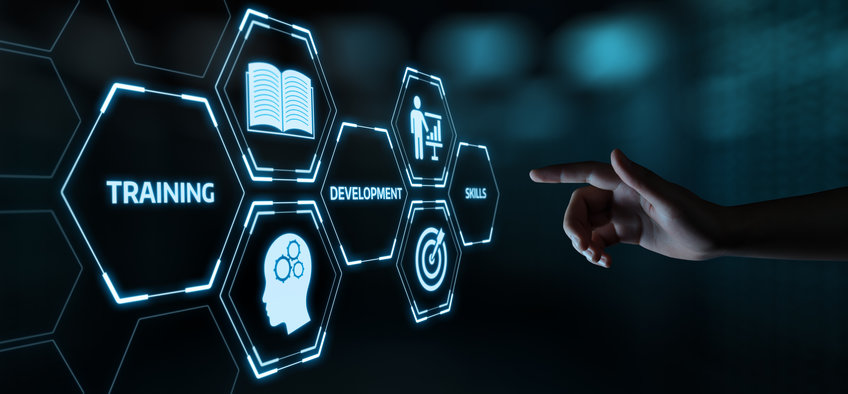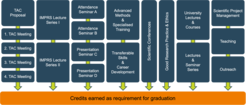
Curriculum and Training
IMPRS-ML provides high-level scientific training in a superb and vibrant research environment with state-of-the-art facilities for doctoral researchers striving for a successful career in science. Additionally, we offer a comprehensive curriculum thus ensuring that our students have access to a wide range of relevant learning and training opportunities.
The majority of curricular activities are chosen by the student themselves allowing them to tailor their learning in a way that best suits their needs and interests. Students are required to earn 25 ECTS credits during their doctoral studies, which can be accumulated by participating in a variety of different activities as outlined below. We believe that our flexible approach maximises our students’ opportunities to further their learning.
The IMPRS-ML curriculum has five main components:
- Interdisciplinary Lecture Series
- IMPRS Seminar Symposium
- Advanced Methods and Specialised Training
- Transferable Skills and Career Development
- Other Curricular Activities incl. IMPRS-ML Retreat
In addition to the curricular activities organised by IMPRS-ML, our students can participate in numerous advanced courses, lectures and workshops offered by our university partners. Moreover, students are encouraged to participate in external training activities including EMBO workshops, advanced summer schools and Marie Curie Training Courses, which offer excellent opportunities for training, networking and scientific exchange. A generous travel allowance is available to fund external training activities and conference attendance.

Through our curriculum, we ensure that our students have access to the most relevant and up to date training and are exposed to cutting-edge research taking place within the institute. Networking is an important feature of our curriculum and we encourage our students to get to know each other at the events we organise. For more information on a particular curricular activity, please see below.
During the winter and summer semester, the School’s faculty members give weekly lectures providing our students with a broad and interdisciplinary understanding of research topics, key technologies and methods used by the research groups. A “get-together” after the lecture allows the participants to discuss the content in depth and socialise.
Twice a year, the entire School comes together for the IMPRS Seminar Symposium which gives our students a platform to present their research findings to fellow students. Poster and talk sessions allow the participants to practice their presentation skills in a professional yet friendly environment whilst familiarising themselves with the projects and research approaches of their peers.
There are prizes for the best talk and poster voted for by the audience followed by a BBQ in summer or a Christmas party in winter, giving our students the opportunity to socialise and network.
IMPRS-ML organises dedicated workshops offering students the opportunity to familiarise themselves with specific advanced methods and techniques that are not routinely used in their laboratories. Some of the workshops are delivered by members of the MPIB core facilities, utilising the state-of-the-art facilities available at the institute.
IMPRS-ML offers an extensive training portfolio in transferable skills covering topics including scientific writing, communication and presentation skills, project management, statistical analysis, leadership skills, and many others. This allows our students to acquire a wide range of transferable skills, thereby making them more competitive on the global job market in general and for leadership positions in particular.
All incoming students participate in our annual Orientation Days in October. The programme includes:
- Visits of the facilities
- Workshops in intercultural communication and good scientific practice
- Introduction to the program and curriculum
- Networking opportunities with new and current students
Every year, IMPRS-ML organises a 3-day retreat, which takes place at various locations in Germany and Austria. Every retreat has a theme and previous themes included:
- Team and leadership skills (outdoor training)
- Career opportunities in academia and beyond
- Cutting-edge methods and technologies
- Science communication
Whatever the theme, our retreat aims to combine learning with socialising, away from the research environment. Our retreats are a great platform for bringing everyone together and encouraging our students to get to know each other better.
- Participation in scientific conferences
- Training in good research practice and ethics
- Advanced lectures at the universities in Munich
- Institutional seminar series and Planck Academy
- Organisation of PhD student-led symposia "Interact" and “InPharma”
- Training in software application skills and programming
